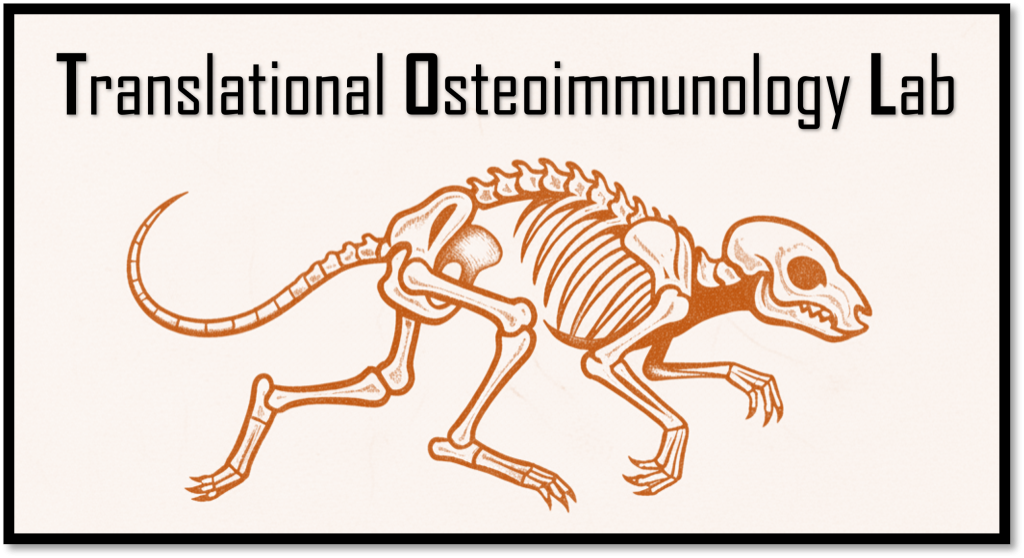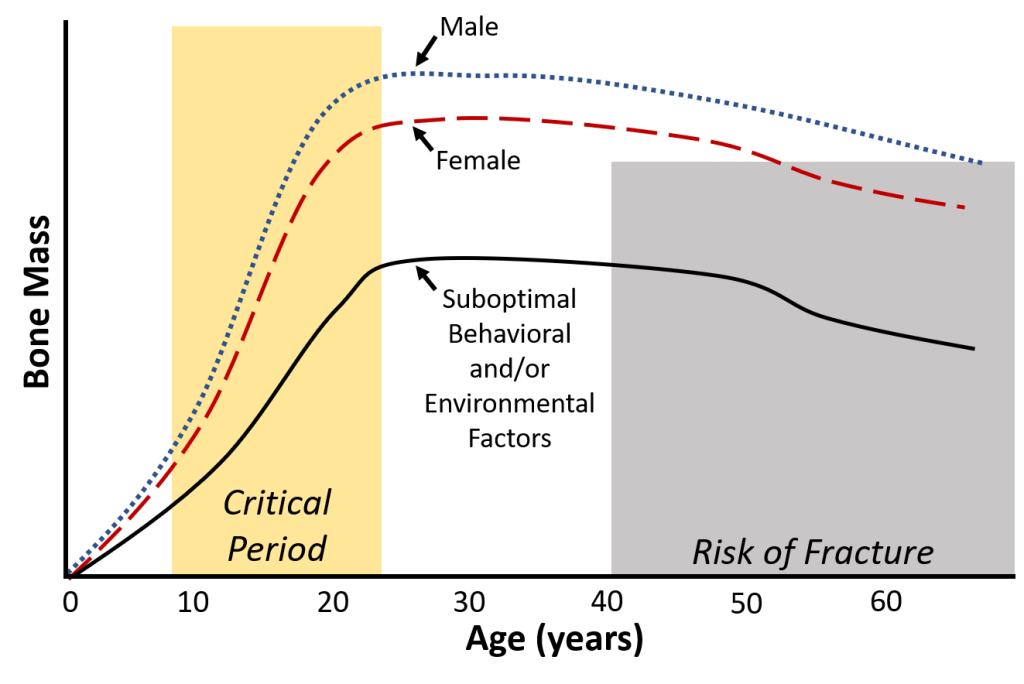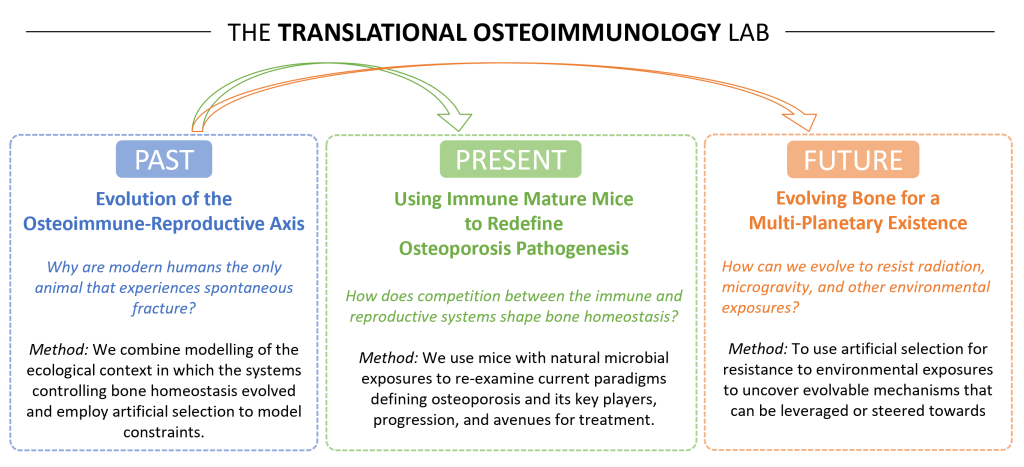
Welcome to the Translational Osteoimmunology Lab (TOL)! The TOL studies the integrative function and evolution of the skeletal, immune, and reproductive systems – or the osteoimmune-reproductive axis. The TOL uses this integrative physiology approach to investigate environmental and behavioral determinants of bone health across the lifespan. Our work is interdisciplinary, applying perspectives from exercise physiology, mechanical engineering, immunology, reproductive biology, and evolutionary anthropology.
Why Our Work Matters: Osteoporosis impacts over 50% of women and 25% of men over age 50 worldwide, with nearly 37 million new osteoporotic fractures annually (IOF Fact Sheet). A 10% increase in bone mass acquisition during adolescence can halve the lifetime risk of fracture and delay the onset of osteoporosis by a decade (Hernandez et al. 2003 Osteoporosis International).

What We Do: The long-term goals of our work in the TOL were developed with the framework that osteoporosis is preventable for the vast majority of people. In this pursuit we are particularly interested in understanding: a) bone mass acquisition during adolescence – a critical period of bone development when over 90% of bone mass accrues; and b) bone loss due to aging of the reproductive and immune systems. We are interested in multiple timescales, ranging from across multiple generations to across the lifespan, and within weeks or months. Research in the TOL centers on osteoimmunology, or how bone and the immune system interact to impact bone health. We leverage mouse models to understand the human skeleton within relevant ecological or environmental contexts, both across the lifespan and over multiple generations.

Relevant techniques include: micro-computed tomography, flow cytometry, multiplex immunoassay, mechanical testing or finite-element analysis, immunostaining, and others.
